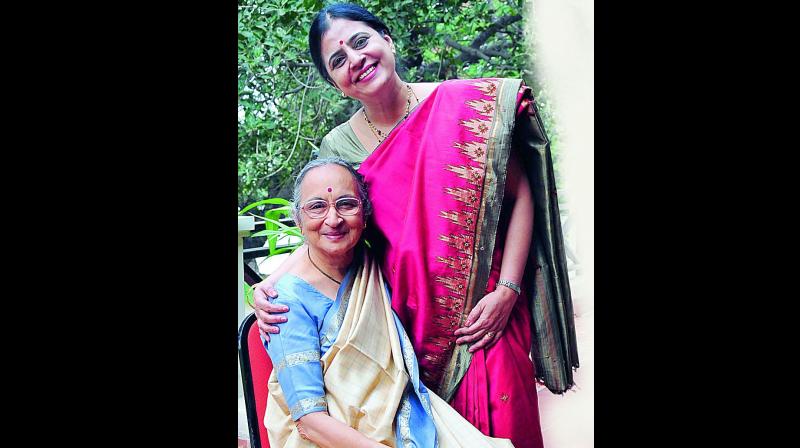Queen of the Agra gharana
In the city for a concert, Lalith J. Rao and Bharathi Pratap are a fine example of the rich guru-shishya tradition.

The inherent magical quality that Indian classical music possesses can’t be compared with any other music genre. In all the Hindustani music gharanas, the Agra gharana stands tall due to the history and grandeur attached to it. Any article on the Agra gharana is incomplete without a mention of Lalith J. Rao, its foremost female vocalist. The Bengaluru-based vocalist was in the city to be a part of the morning concert organised by Surmandal in her honour at Sailing Annexe. Giving her guru an apt tribute and guru dakshina was Bharathi Pratap, who has been training under Lalith for 17 years now.
Lalith, a qualified engineer, had switched to music full-time at the behest of her husband. Her tryst with music started when she was a three-year-old child. “I was only a kid when I sat through a four-hour-long recital of Aftab-e-Mousiqi by Ustad Faiyaz Khan. I was completely fascinated and spellbound, much to my parents’ surprise. And since then, I had been fortunate to have great gurus one after the other wherever I stayed, be it Delhi, Mumbai or Bengaluru. I guess it was destiny that wherever I went there was a great guru of the Agra gharana present and willing to take me in. I did my engineering and later on when I came back to music, I had to start again from scratch,” she says. Agreeing with her guru, Bharathi too feels having a great guru helps to build the base and the talent. She says, “I am really blessed to have a guru like her. She makes it a point to teach every student one on one and she can repeat a hundred times until one gets it right.”
Elaborating about the minute nuances of the Agra gharana, the dynamic guru-shishya team feels that it is only in this gharana that one gets to hear robust music. “The gayiki is robust; there is a beautiful interplay between the beat and the word,” says Lalith.
Elaborating on the importance of the guru-shishya tradition and its relevance in today’s world, Lalith says, “Today, one has the advantage of listening to a song over and over again. So someone might feel that he/she doesn’t need to concentrate 100 per cent in the class and can listen to the recording whenever there is time. That was not the case when I was learning. Earlier, students used to stay with their guru all the time, thus having the opportunity to pick up every minute detail of singing.”

